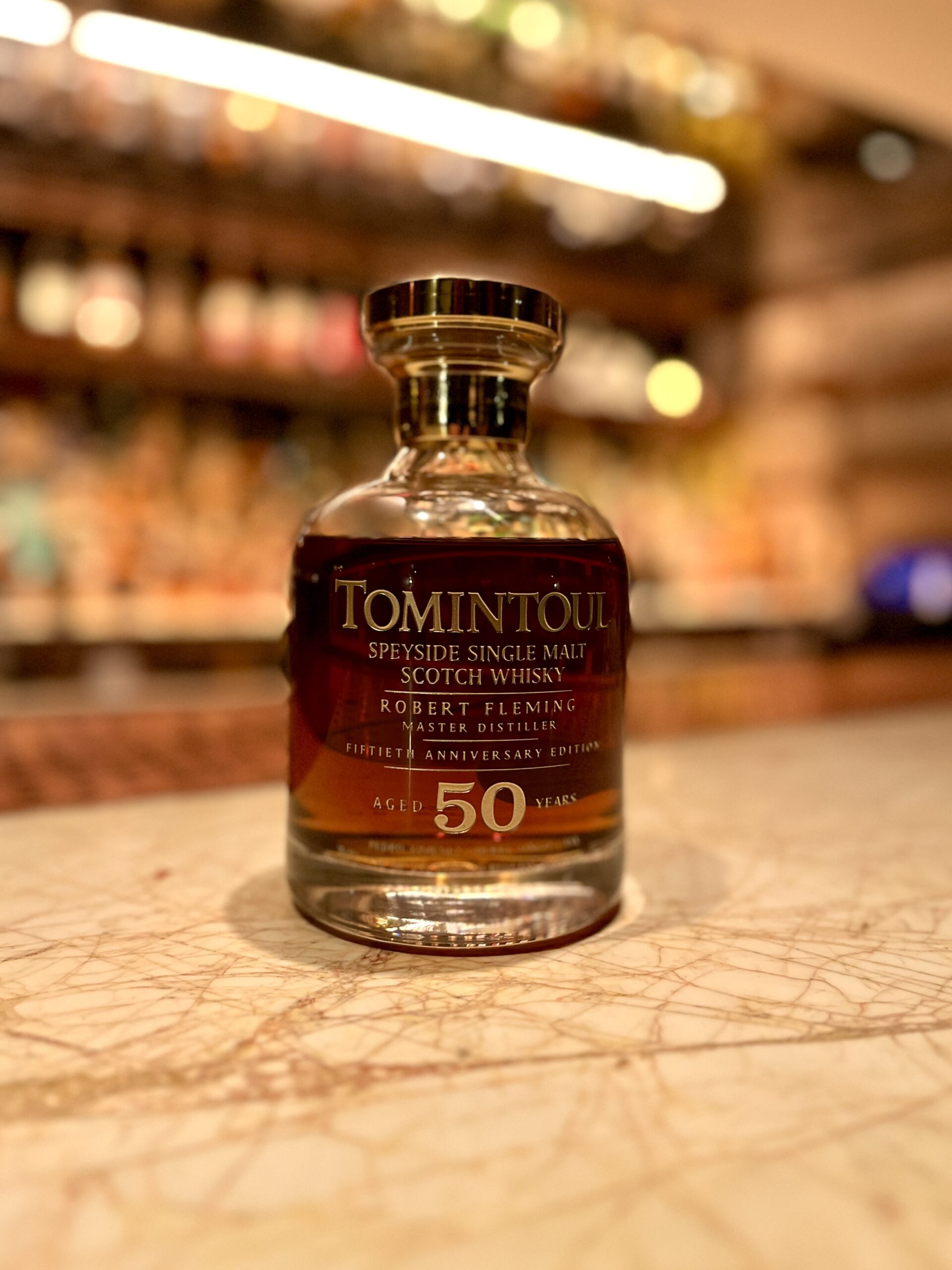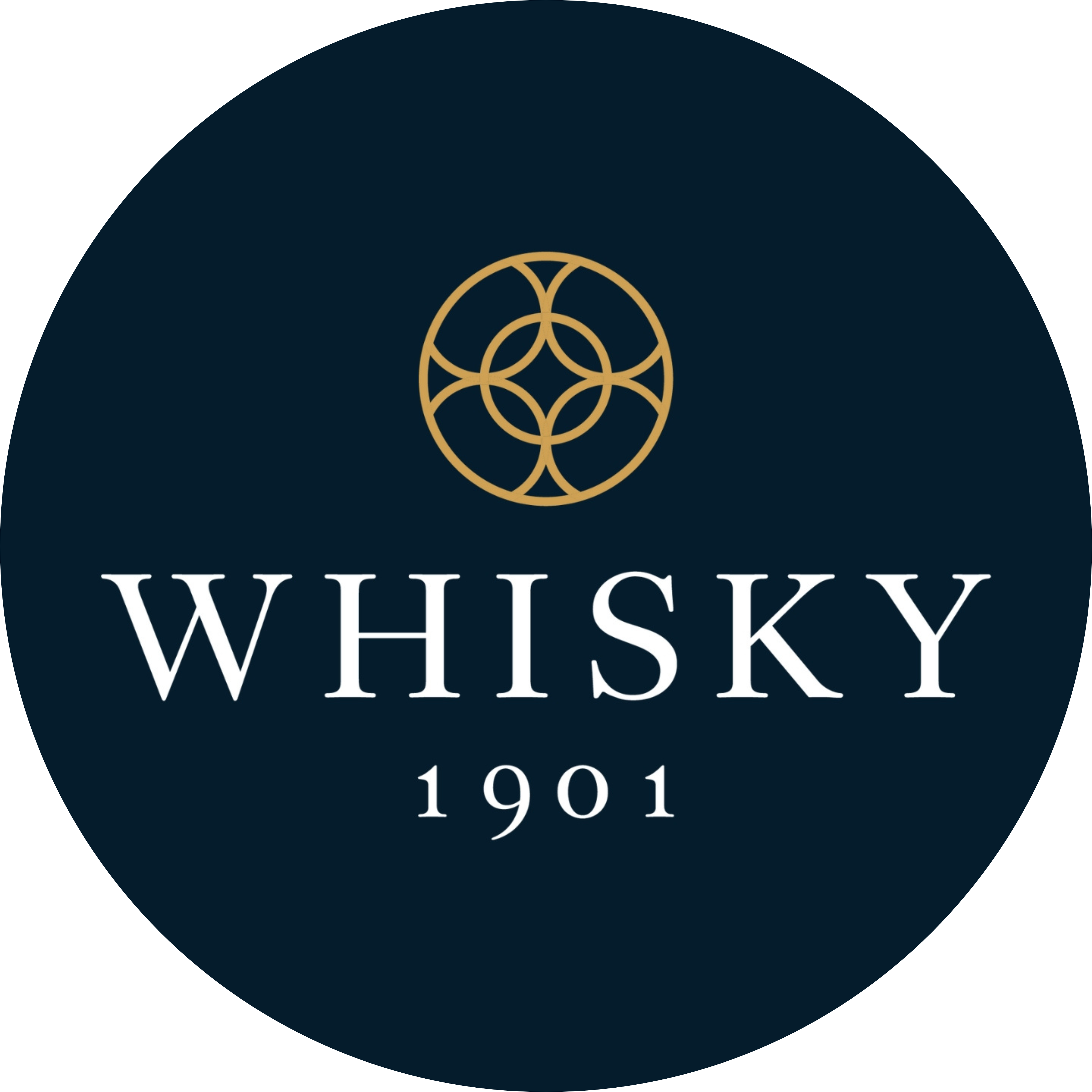A Bit of History
The Tomintoul distillery was built and began production in 1965 as part of the boom that swept across the Scotch whisky industry during the 1960s. It was founded by the Tomintoul Distillery Company, which was joint owned by Hay & Macleod & Co. and W & S Strong & Co. The distillery was sold to the Scottish & Universal Investment Trust in 1973, which would later also take over blending company Whyte & Mackay, and they immediately expanded the distillery and doubled production.
Several changes of ownership during the 1980s and 90s occurred but Tomintoul always remained within the Whyte & Mackay stable. Current owners Angus Dundee Distillers took control in 2000 and set about establishing Tomintoul as a single malt brand for the first time. Within three years they had launched several expressions including the classic 10- and 16-year-olds. Robert Fleming, Tomintoul’s legendary Master Distiller, has been at the distillery over 30 years and has just celebrated his 50th anniversary in the Scotch whisky industry.
Background
As with many distilleries, particularly those built between the mid-1960s and mid-1970s, Tomintoul was primarily designed to supply single malt to several blends and blending companies. Numerous changes of ownership saw it fall into the lap of Whyte & Mackay, and it became synonymous with the famous blend.
Blending contracts and bulk sub-contract distilling remains an important part of Tomintoul, but now more emphasis is on its single malt range. The distillery is one that is highly innovative with its cask sourcing and management and is one of the most creative when it comes to different finishes. Many of these appear as limited edition or small batch releases.
The Geeky Bit
Tomintoul has an annual production capacity of 3.3 million litres. It is equipped with a 12-tonne mash tun, through which 15 mashes per week are run. There are six stainless steel washbacks and they operate a fermentation time of 60 hours. Two pairs of stills (2x wash and 2x spirit stills) are currently working at full capacity to meet the demand for Tomintoul single malt from consumers and blenders alike. Water is taken from the Ballantruan Spring.
Most of the production is for classic unpeated new make spirit. However, since 2001 heavily peated spirit has been produced for a short period each year. This currently equates to around six weeks of production and 450,000 litres annually. Some is used within Angus Dundee’s blends, while some is released as a Tomintoul single malt under the name of Old Ballantruan.
One To Buy | Tomintoul 10 years old
This is a classic Speyside single malt and kicks off the age-statement whiskies in the distillery’s core range. It is joined by several other whiskies of significant age including 14-, 16-, 18-, 21- and 25-year-old, plus the popular non-age statement Tlath, Seiridh and Cigar Malt. A few peated Old Ballantruan malts also exist including 10- and 15-year-old expressions.
The 10-year-old has a vibrant and fruity nose packed with aromas of baked apple and ripe apricot mixed with delicate malt and a whiff of warming baking spice. The soft apple theme continues with the palate and is accentuated by delicious notes of vanilla fudge, juicy sultana and hints of bitter orange and gingerbread-like spice. The distinct biscuity maltiness returns for the finish.





